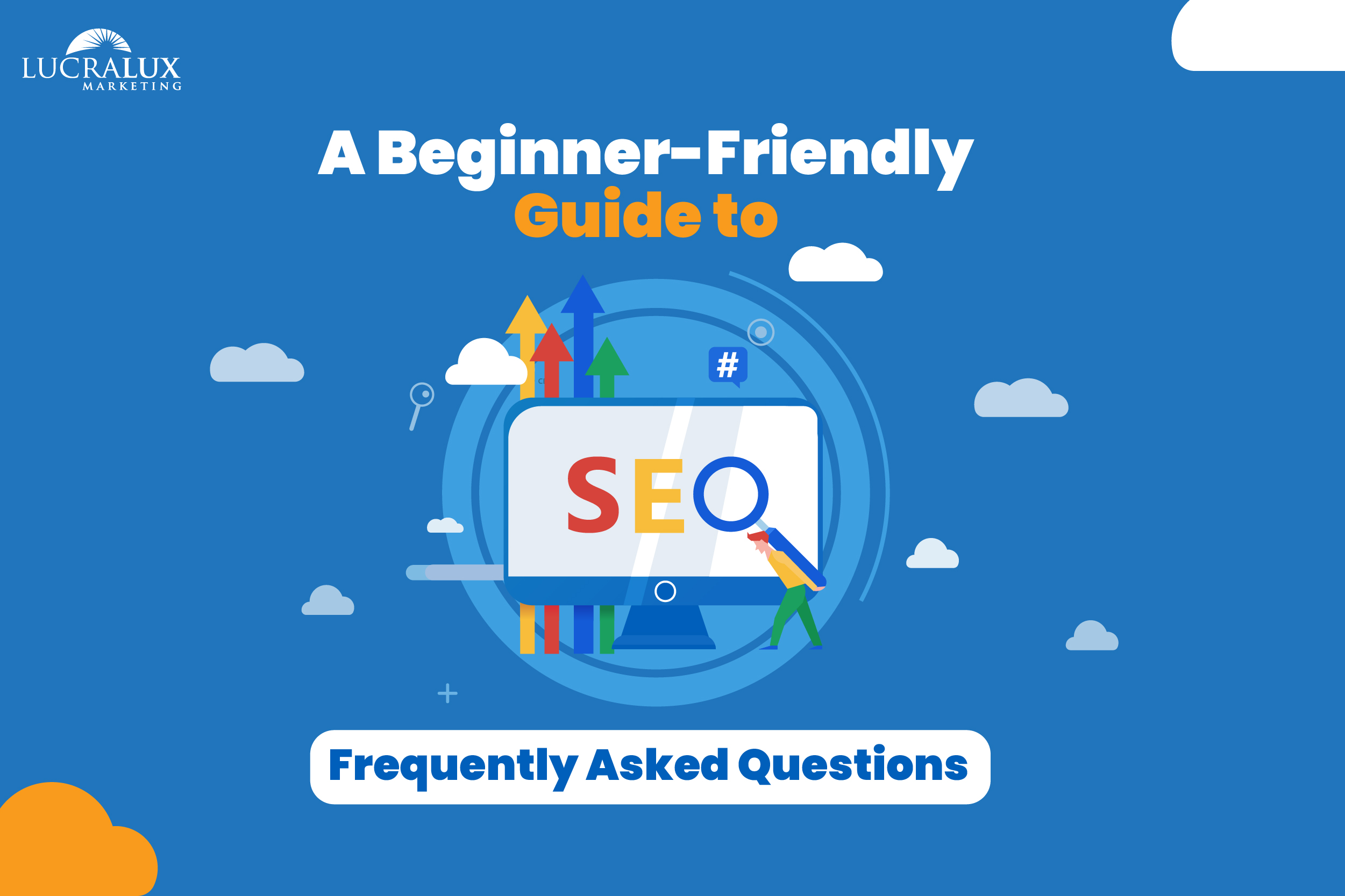A Beginner-Friendly Guide to SEO
A Beginner-Friendly Guide to SEO
A Beginner Friendly Guide to SEO
Frequently asked questions
Do you also get a little overwhelmed when you hear about SEO?
We totally understand. It can be a lot to digest.
This beginner’s guide will help you get the hang of it. We’ll explain what SEO is, the different types of SEO, how each actually works, and more.
What is SEO?
SEO is the acronym for Search Engine Optimisation, which increases the quality and volume of traffic to a website through organic search results. Basically, it’s ensuring that all the essential aspects of a website, like its design and content, are optimised so that you can be among the first set of search engine results.
With SEO, your business has a great chance of receiving attention and attracting more meaningful customers.
Types of SEO
People often mistake SEO for just being the keywords used on the website. That is only one of the three types of SEO called On-Page SEO.
On-Page optimisation deals with everything visitors will see on your website, like your products and services, resources and blogs. It’s the type of SEO that optimises each page on your website to seem more relevant to search engines.
Off-Page SEO is a little complex as it refers to actions that occur outside of your website that can affect its visibility. It relies on other sites on the Internet linking to or promoting your website as a reputable site for quality and reliable content.
Technical SEO is the third type of SEO. Factors relating to technical SEO usually happen behind the scenes, so basically, your website’s functionality. Things to note to optimise technical SEO are website responsiveness, page load speed and HTTPS secure connection.
We’ll discuss how to optimise each in another question to follow.
Do I need SEO for my website?
Definitely! In addition to increasing visibility and earning more traffic, SEO helps to establish credibility. Combining SEO with content marketing will do wonders to improve your authority.
Users are constantly looking for helpful resources, and when your website gives them precisely what they are looking for, organically at that, you build their trust.
How is it different from SEM? Should I be doing one or the other? Or both?
SEM stands for Search Engine Marketing. While its purpose is also to increase visibility and traffic from search results, it does so through paid advertising. So to be clear, SEO is the organic way to rank higher in search results, and SEM is the method you have to pay for.
Both strategies yield success, but SEO is more sustainable, and it adds value to your website over time. Possibly to the point where you may not even need to advertise with SEM.
But for now, if your business isn’t at least on the page when people search for a keyword relevant to your business, then SEM is a good idea.
How is SEO done?
You achieve on-page SEO when your website’s content is high quality, informative and relevant.
First things first, your webpage needs to have appropriate title tags and meta descriptions. The title tag that exists in the head section of each webpage must provide context to what is actually on the respective pages. Appropriate meta descriptions help improve the click-through rates as the explanation of what your website offers becomes clearer to visitors.
Off-page SEO is harder to optimise because it’s not entirely under your control. A considerable part of off-page SEO is link building which means getting other web pages to link back to your website. You would need to build relationships with bloggers, journalists and other people behind similar websites to yours to get them to link back to your website or allow you to guest blog.
Including links in popular social media posts can also help SEO.
For technical SEO, you just need to build a responsive website that scales well on mobile, as most search engines prefer such sites. Optimising large images and caching information can increase your website's load time.
How long does SEO take to work?
It can take about six months to see results (traffic, leads, conversions) on low competition keywords. Targeting common keywords will take a lot longer (2-3 years, maybe) because you’re competing with many other brands.
We hope your SEO questions have been answered! Shoot us an email if you’d like to know anything else about SEO or otherwise. Happy optimising!
#BBD0E0 »
Did you find this blog post helpful?
If so, please consider sharing it and be sure to tweet us and let us know your biggest takeaway!
If you haven't subscribed to our blog, CLICK HERE so you never miss another post.

